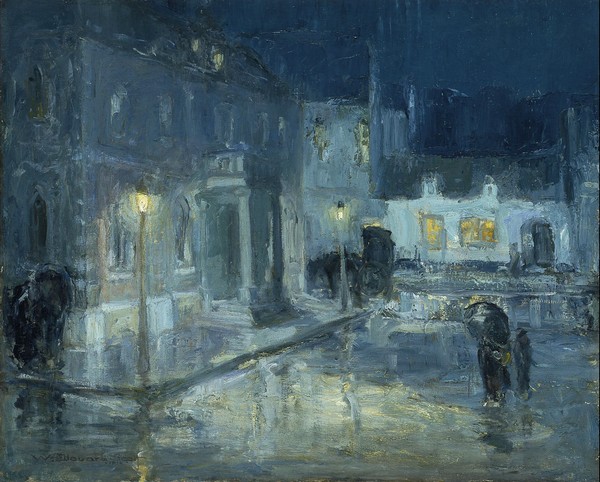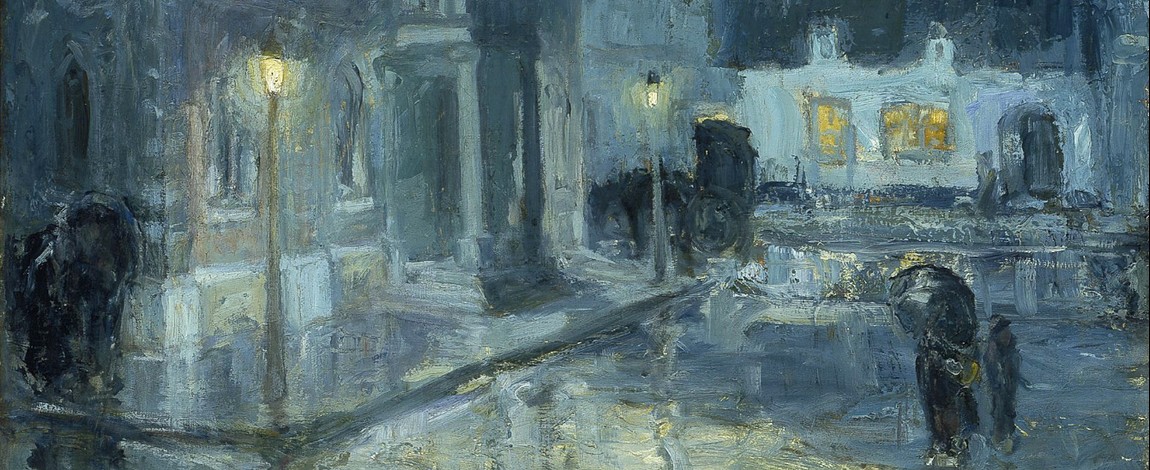
During the early decades of the 20th century, the development of industry in the northern states of the United States, with the consequent need for labour, attracted many people who sought an opportunity for a better life. From Europe, especially, but also from the southern states, where African Americans were discriminated against in an unfair and yet legal situation. During the years of World War I, when the flow of people arriving from Europe decreased, the flow of people coming from the south increased. This is how new and important African-American communities were formed. In Harlem, for example, it was estimated that there were approximately 175,000 African-American newcomers. This was also how a new collective identity emerged linked to the Harlem Renaissance, a cultural movement described by Alain Locke (known as its “dean”) as the achievement of a “spiritual coming of age”, with which “African Americans transformed social disillusionment to race pride”.
Although the Harlem Renaissance encompassed all artistic manifestations, music was his most visible face: blues and jazz, and figures such as Josephine Baker, Duke Ellington, Louis Armstrong and Billie Holiday had a significant impact, both in America and Europe at the time. However, not all musicians opt for this form of traditional music; some, such as William Gran Still, have found their way into academic music.
Still was born in 1895 in the state of Mississippi and brought up in Arkansas. After studying violin and composition at Oberlin College (Ohio) and the New England Conservatory in Boston, in the 1920s he moved to Harlem, where he would become the most important academic musician at the Harlem Renaissance. While performing with jazz bands and Broadway theatre orchestras, he devoted himself to composition, and the orchestra conductor Howard Hanson premiered the 1931 Symphony No. 1, “Afro-American.” Thus, he became the first Afro-American composer to have a work of his first performed by a major orchestra. In 1936, already settled in Los Angeles, he presented his music in front of the Los Angeles Symphony Orchestra, thus marking a new milestone; he would also be the first black conductor to conduct a southern orchestra, in New Orleans, although almost twenty years would still pass. In 1949, the New York City Opera premiered its opera Trouble Island. This was the first time a major company had staged an opera by an Afro-American. As you can imagine, despite these significant milestones, Still's career wasn't easy, he also suffered numerous discriminations, but at least it was recognized and celebrated in life. In 1978, he died as a renowned composer, leaving a work that includes eight operas and five symphonies.
His work also includes a few songs, really interesting. A few weeks ago, when I presented the programme of the 2024 Schubertíada, we heard one of them, Parted, (with a poem by one of the most outstanding authors of the Harlem Renaissance, Paul Laurence Dunbar), included in his most significant cycle, Songs of Separation. This week we will listen to Song for the lonely, with a poem by the writer and pianist Verna Arvey, of Russian origin, with whom Still would marry in 1934. As the title suggests, the song speaks of loneliness, and it does so one more time by melting tears and rain. Song for the lonely performers will be Claudine Carlson and Georgia Akst. I hope you like it!
Raindrops, soft from the mist
Disturb the stillness of my thoughts
Raindrops, soft from the mist
Beat down
A bird note breaks, the all pervading hush
A ray of moonlight cuts a darkness
No footstep comes along a rebel highway
Not the sound of a stone displaced
Soft raindrops, fresh from the mist
Dull the pain of loneliness
Soft raindrops, fresh from the mist
Beatdown
Raindrops, unceasing, they bring again the breath of a presence
Raindrops insistent they bring again the long lost dream
Raindrops raindrops unending they fall into my soul…
Into my heart and mingle with my tears













